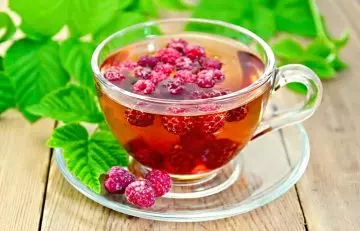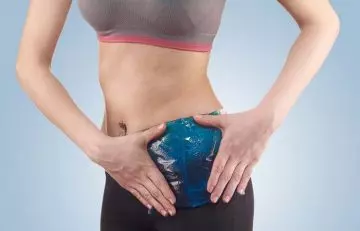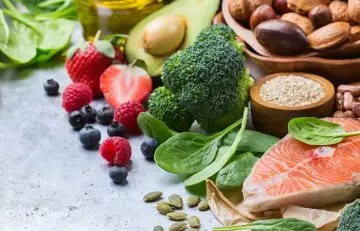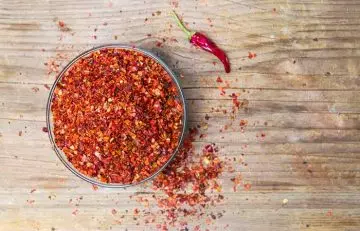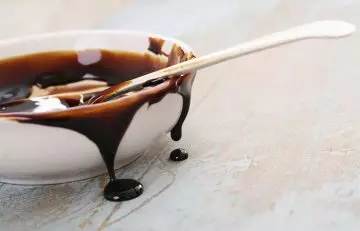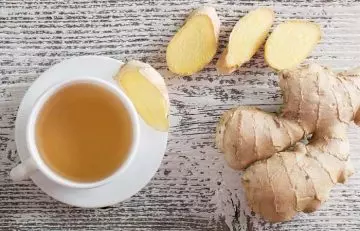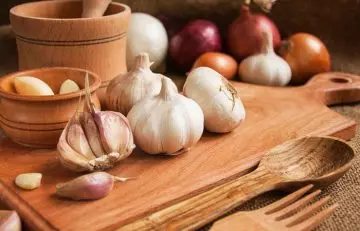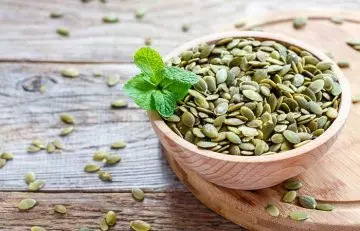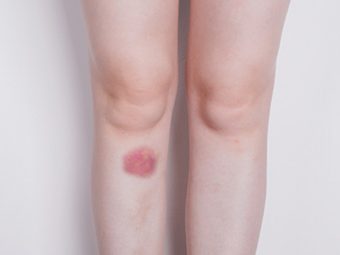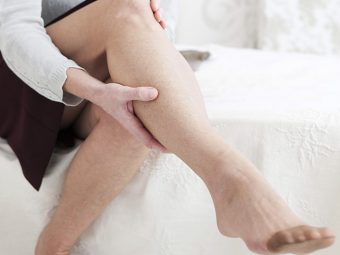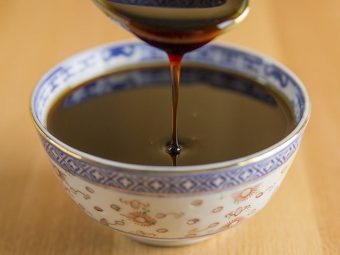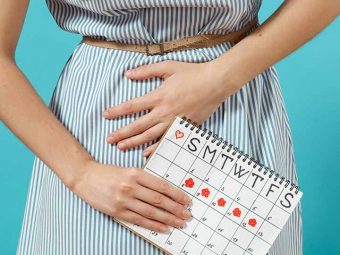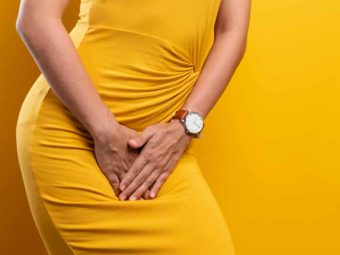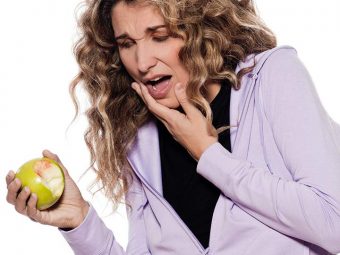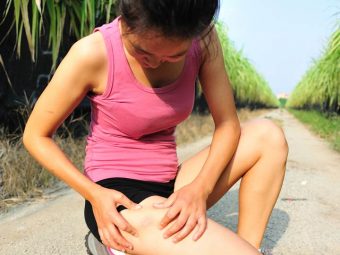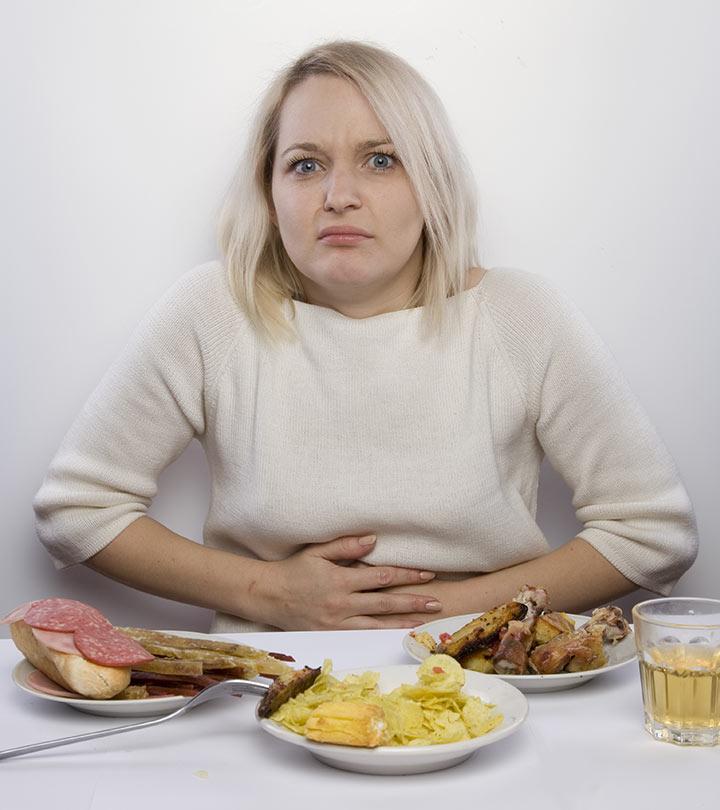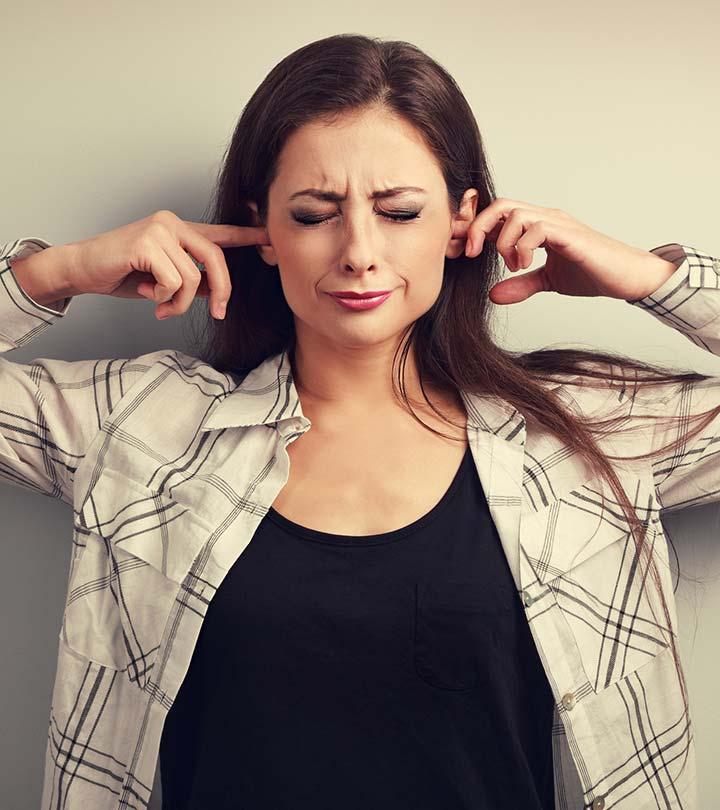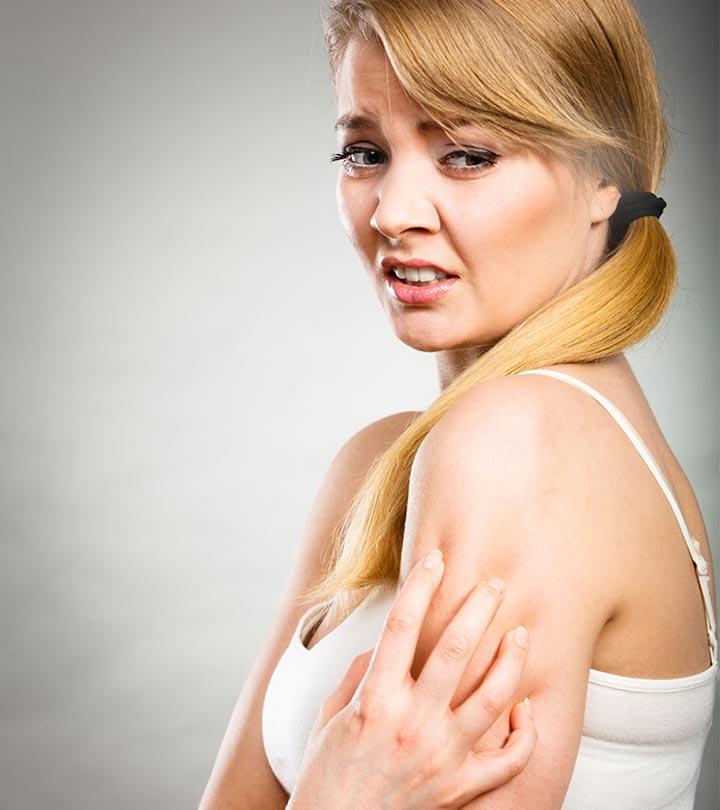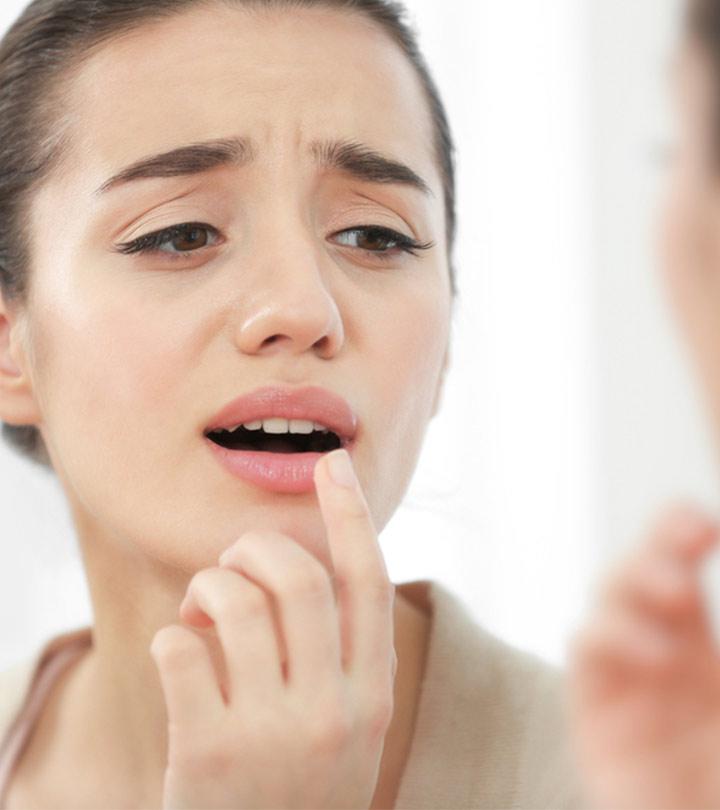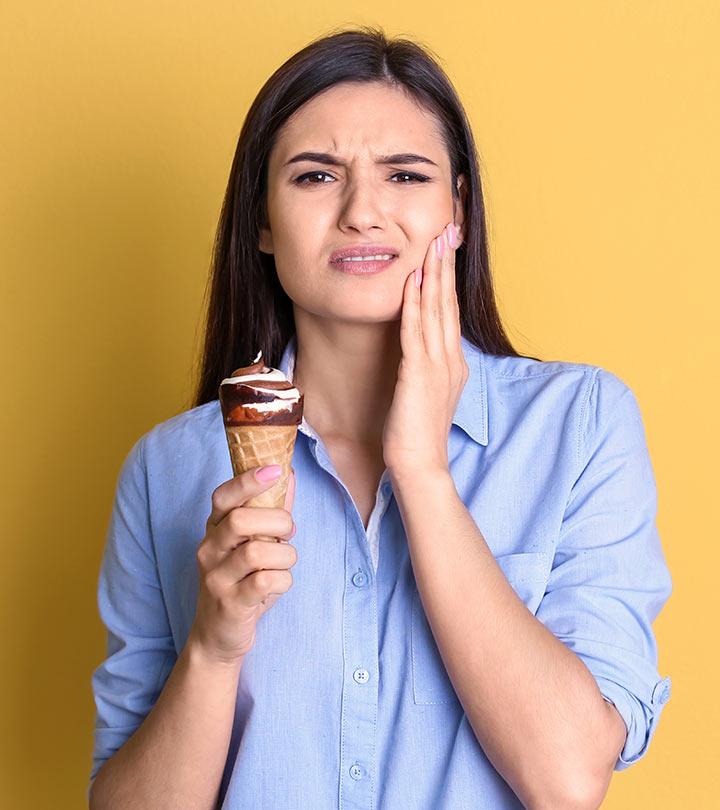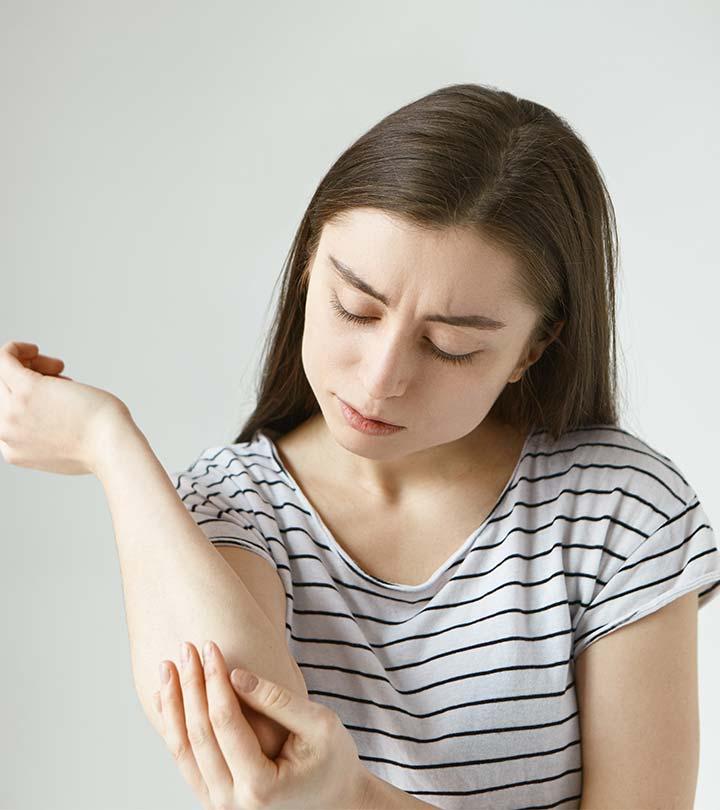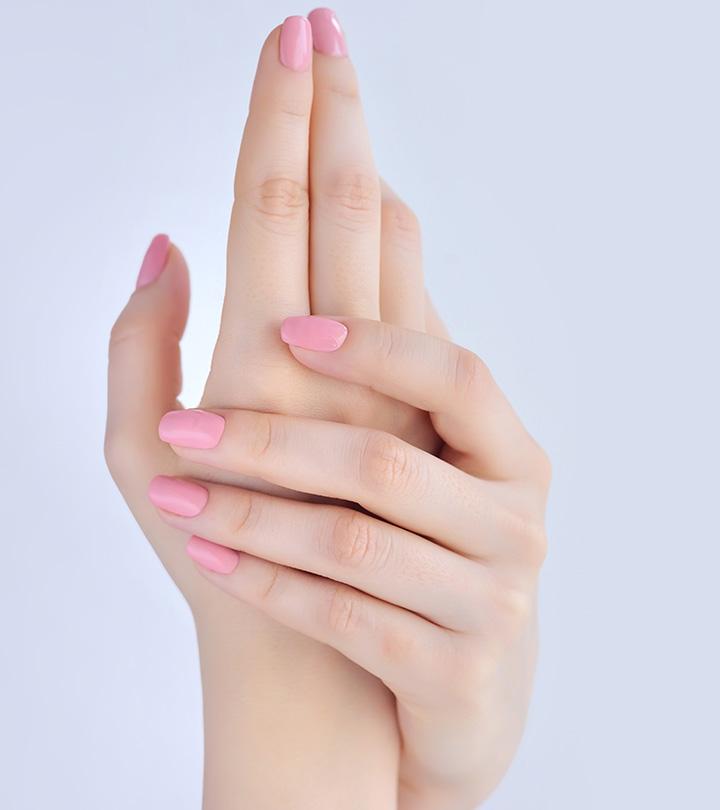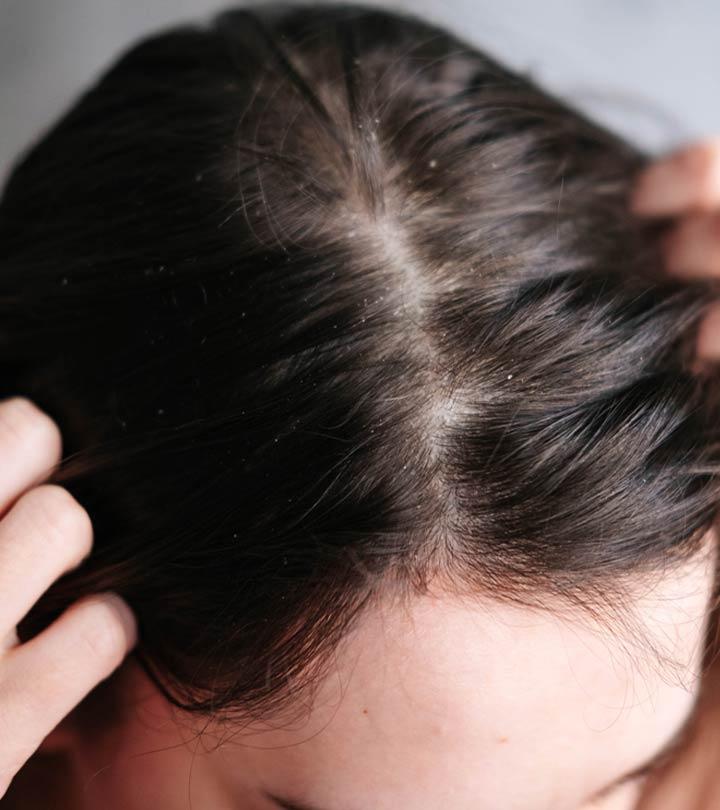Causes Of Blood Clots During Periods & Remedies To Treat Them
Unearth the underlying causes of frequent passing of clotted blood during menses.
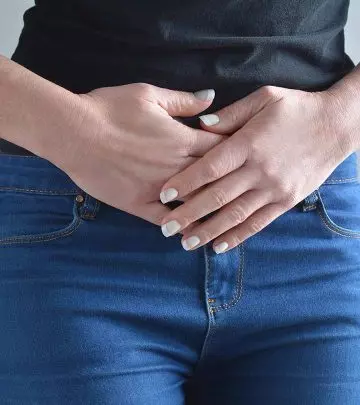
Image: Shutterstock
Seeing blood clots during your period is not a cause for concern and is experienced by most women around the world. Menstrual blood clots develop when the uterus sheds an increased amount of blood which coagulates in your vagina before coming out of the body. While blood clots during menstruation are not harmful, if you experience heavy bleeding for more than seven days, consult a doctor immediately. In this article, we take a look at some of the natural remedies available for the treatment of blood clots during your periods.
In This Article
What Is A Menstrual Blood Clot?
Menstrual blood clots are globs of coagulated blood that have a gel-like appearance. These globs can also be tissues and by-products of blood that are expelled from the uterus during the menstrual cycle.
Small and less frequent blood clots are a common occurrence, and you don’t need to worry about them. However, if you are regularly passing large clots during your period, it could be an indication of an underlying medical condition.
Blood clots are often classified as normal or abnormal, depending on their appearance. Let’s look at the types in detail
Types Of Blood Clots
Normal blood clots are usually:
- Smaller (not larger than a quarter)
- Occasional (usually occur at the beginning of your menstrual cycle)
- Bright or dark in color
On the other hand, abnormal blood clots are:
- Larger than a quarter
- Occur frequently
So, what causes these clots in the first place? Let’s find out.
What Causes Blood Clots During Periods?
The menstrual cycle of a fertile woman repeats every 28 to 35 days, lasting for about 4 to 8 days. It causes the shedding of the uterine lining (also called the endometrium).
The endometrium, which thickens and grows in response to the hormone estrogen, supports a fertile egg upon conception. However, if a woman does not conceive during this period, this lining sheds off. This whole process is called menstruation. This shedding causes blood clots during menstruation.
When the lining is shed, it may get mixed with
- Blood
- Blood by-products
- Mucus
- Tissue
The endometrium usually pools in the bottom of the uterus and waits for the cervix to contract to be expelled. To help with the breakdown of this lining, your body produces anticoagulants. When the blood flow surpasses the amount of anticoagulants produced, it results in blood clots.
Medical conditions responsible for heavy blood flow during your periods are:
- Uterine obstructions that enlarge the uterus
- Fibroids, which are noncancerous muscular tumors that grow in the uterine wall
- Polyps, which are tissue growths that develop in the inner lining of your uterus
- Endometriosis, a condition in which the uterine lining grows outside the uterus and into your reproductive tract
- Adenomyosis, which occurs when the uterine lining grows into the uterine wall
- Cancerous tumors
- Hormonal imbalances
- Postpartum hemorrhage
- Uterine cancer and cervical cancer
- Pelvic inflammatory disease
According to a survey in 2023 about 66200 people in the United States are likely to be diagnosed with uterine cancer. It is the 4th most common cancer that affects women in the the US. In 2020, about 417367 cases were registered worldwide. It is more prevalent among Black women than White women in the US. The number people diagnosed with uterine cancer has been rising by 2% every year among women aged 49 and below and by 1% per year in elderly women. Hence, it is advisable to consult a doctor when you observe symptoms like blood clots in your period to avoid risks.
Priyanka Gulati, a blogger, shares her battle with periods that started at the age of 14. She was anemic at the time, which led to heavy bleeding. She writes, “My vagina used to bleed ‘clots’ or in layman’s terms ‘big pieces of blood (i).’” She dreaded her periods until she turned 22 when a doctor treated her condition. Later when she turned 40, she was diagnosed with a polyp in her uterus that caused irregular periods and heavy flow. She shares, “One of the reasons for my problematic periods was hormonal imbalance induced by stress.” She recommends managing stress, exercising, and eating healthily to prevent this.
 Quick Tip
Quick TipMenstrual clotting can also be accompanied by the following side effects.
Side Effects Of Menstrual Clotting
- Anemia due to abnormally heavy blood flow
- Severe pain or period cramps
We strongly recommended you visit a doctor if your menstrual blood clots are more frequent. This is to rule out potential complications.
However, if they are occasional and you are not experiencing the above side effects, you can try these home remedies that can help in easing menstrual blood clots.
Home Remedies To Treat Blood Clots During Periods
- Red Raspberry Leaf
- Massage
- Cold Compress
- Vitamins
- Cayenne Pepper
- Blackstrap Molasses
- Ginger Tea
- Chamomile Tea
- Garlic
- Pumpkin Seeds
- Apple Cider Vinegar
How To Get Rid Of Menstrual Blood Clots Naturally
1. Red Raspberry Leaf Tea
You Will Need
- 1 teaspoon of red raspberry tea
- 1 cup of water
- Honey
What You Have To Do
- Add a teaspoon of red raspberry tea to a cup of water.
- Bring it to a boil in a saucepan and simmer for 5 minutes.
- Strain and allow the tea to cool a bit.
- Add some honey to it and consume.
How Often You Should Do This
You must drink this 2 to 3 times daily.
Why This Works
Red raspberry may help balance your hormones and treat menstrual problems, as studied a research conducted in mice (1).
2. Massage
Various massaging techniques help improve reproductive system health and enhance blood circulation around the uterus. They can also ease away the menstrual blood clots as they improve blood flow (2).
3. Cold Compress
You Will Need
An ice pack
What You Have To Do
- Apply a cold pack to your lower abdomen.
- Leave it on for 1 to 2 minutes and remove.
- Repeat thrice, preferably after every 5 minutes.
How Often You Should Do This
You must do this whenever you observe blood clotting during your period or right before you are due.
Why This Works
Cold compresses help constrict the blood vessels and have a numbing effect, which can ease the blood clots (3).
4. Vitamins
Vitamins A, B, D, and C help relieve heavy menstrual bleeding or clotting.
Vitamin A ensures proper replication of red blood cells, and its antioxidant properties protect cells from damage.
B vitamins, especially vitamin B6, are necessary for producing prostaglandinsi XA group of active lipid compounds with hormone-like effects, such as inducing labor and regulating other hormones. that help reduce blood clots.
Vitamin D balances hormones to alleviate excess bleeding.
And lastly, vitamin C can help strengthen your fragile cells and blood vessels, thereby easing blood clots (4).
5. Cayenne Pepper
You Will Need
- ½ teaspoon of powdered cayenne pepper
- 1 glass of warm water
- Honey
What You Have To Do
- Add half a teaspoon of cayenne powder to a glass of warm water.
- Mix well and add some honey to it.
- Consume this mixture.
How Often You Should Do This
You must drink this twice daily.
Why This Works
Cayenne pepper enhances blood flow, which is why it is used to treat various bleeding disorders (like hemorrhage). Regular consumption of cayenne peppermay help improve blood flow(5).
6. Blackstrap Molasses
You Will Need
- 1-2 teaspoons of blackstrap molasses
- 1 cup of warm water or milk
What You Have To Do
- Add one to two teaspoons of blackstrap molasses to a cup of water or milk.
- Mix well and drink it.
How Often You Should Do This
You must drink this once daily during your period or right before it begins.
Why This Works
The iron in blackstrap molasses encourages the production of red blood cells, thereby replacing the excess blood lost during menstruation. It also soothes your uterine muscles and walls, alleviating pain and blood clots.
7. Ginger Tea
You Will Need
- 1 teaspoon of minced ginger
- 1 cup of water
- Honey
What You Have To Do
- Add a teaspoon of minced ginger to a cup of water.
- Bring it to a boil in a saucepan and simmer for 5 minutes.
- Strain and allow the tea to cool for a while.
- Add a little honey to it and consume immediately.
How Often You Should Do This
Drink this twice daily for optimum benefits.
Why This Works
Regular ginger intake can reduce heavy blood flow and clots during menstruation, as per a study published in Phytotherapy Research (6).
8. Chamomile Tea
You Will Need
- 1 teaspoon of chamomile tea
- 1 cup of water
- Honey
What You Have To Do
- Add a teaspoon of chamomile tea to a cup of water.
- Bring it to a boil in a saucepan.
- Strain and allow the tea to cool.
- Add some honey to it and drink immediately.
How Often You Should Do This
You must drink chamomile tea on a daily basis.
Why This Works
The coumarin in chamomile tea helps in blood thinning, which helps in reducing blood clots. And the tea’s anti-inflammatory properties help you deal with menstrual cramps and pain (7).
9. Garlic
You Will Need
Minced garlic
What You Have To Do
- Add minced garlic to your dishes.
- You can also chew on a garlic clove as an alternative.
How Often You Should Do This
You must do this daily, especially when you are on your period.
Why This Works
Sulfur, an important compound in garlic, exhibits anticoagulant activity against clotting disorders like thrombosisi XFormation of a blood clot inside a blood vessel, obstructing the blood flow in the circulatory system. (8). Hence, garlic can help to get rid of menstrual blood clots.
10. Pumpkin Seeds
You Will Need
2 tablespoons of roasted pumpkin seeds
What You Have To Do
- Take two tablespoons of roasted pumpkin seeds.
- Break their shells and consume them directly.
How Often You Should Do This
Consume pumpkin seeds daily.
Why This Works
Pumpkin seeds contain phytosterolsi XPlant-derived compounds that help lower cholesterol levels and reduce the risk of heart ailments. as well as omega-3 polyunsaturated fatty acids (which get converted to prostaglandins) that can help ease blood clots during menstruation (9),
Prevention is always better than cure, especially when it comes to your health. In addition to the home remedies, you can also follow these prevention tips to deal with blood clots during menstruation.
11. Apple Cider Vinegar
You Will Need
- 1-2 tablespoons of apple cider vinegar
- 1 glass of water
- Honey (optional)
What You Have To Do
- Add 1-2 tablespoons of apple cider vinegar to a glass of water.
- Stir well. Add honey to sweeten the mixture if you’d prefer.
How Often You Should Do This
Consume it twice a day during your periods.
Why This Works
Anecdotal evidence suggests that apple cider vinegar may help reduce the discomfort associated with heavy menstrual flow. This could be due to the potassium in apple cider vinegar (10). In one study, intake of diclofenac potassium, a drug high in potassium, was found to reduce menstrual cramps (11). However, whether potassium found in natural foods, like ACV, helps ease menstrual discomfort is yet to be studied.
While these remedies may help, what if you could prevent these blood clots in the first place? Learn more from the tips below.
Prevention Tips
- Avoid consuming foods that contain vitamin K.
- Consume fruits rich in vitamin C.
- Drink lots of water and keep yourself hydrated.
- Exercise regularly.
 Quick Tip
Quick TipInfographic: Underlying Health Conditions That May Lead To Large Blood Clots During Periods
While clotting during the menstrual cycle is normal and expected, in some cases, it may be a sign of an underlying health condition, especially if the clots are bigger than a quarter, frequent, and accompanied by heavy menstrual flow. Check out the infographic below to know more about the health conditions that may cause larger-than-usual blood clots during periods. Illustration: StyleCraze Design Team
Blood clots during periods can have many causes. These include fibroids, endometriosis, and hormonal imbalances. Certain home remedies can help manage blood clots during periods. Using red raspberry leaf, pumpkin seeds, chamomile tea, cold compress, vitamins, blackstrap molasses, cayenne pepper, ginger tea, and pumpkin seeds can minimize blood clots. In addition, you can possibly prevent blood clots by consuming foods rich in vitamin C, hydrating adequately, and exercising regularly. Also, limiting foods rich in vitamin K is recommended.
Frequently Asked Questions
How long do you bleed on your period?
Bleeding during periods may last anywhere between 2 to 7 days. Bleeding that continues for longer may need medical attention.
Is it normal to have a blood clot when you are on your period?
It is completely normal to notice blood clumps or clots during your periods. But if these clots are accompanied by heavy blood flow and last for more than one normal period, it could be an indication of an underlying medical issue.
Are blood clots a sign of miscarriage?
If you are pregnant, rapid bleeding and cramping, accompanied by contractions, can lead to the removal of large blood clots and tissues from your uterus. This is most often a sign of a miscarriage.
What does the color of your period blood tell you?
While bright red blood hints at the beginning of your cycle, dark red blood occurs towards the end and is an indication of the end of your period. Brown or black blood is usually present at the very end of your period and has been around for longer whereas light brown blood usually surfaces at the very beginning of your period, right before you notice the bright red spotting.
When to see a doctor?
You must visit your doctor immediately if:
• Your pad or tampon is soaked in blood in an hour for several hours
• You experience irregular bleeding
• You experience vaginal bleeding after menopause
Can ovarian cysts cause blood clots during a period?
Yes, if an ovarian cyst bursts, it may cause blood clots. Additionally, the cysts may lead to heavy, uncomfortable menstruation and irregular periods.
Do blood clots make you tired?
Yes, blood clots during periods can make you feel weak and tired.
Does walking prevent blood clots?
Yes, walking can help prevent blood clots by boosting blood flow and making you feel better during your period. However, be careful not to overdo it.
Can stress cause blood clots?
Yes, external causes like stress can make your period heavier and lead to blood clots.
Key Takeaways
- Many women frequently have blood clots during a period. The main reasons are hormonal changes and the production of a protein called fibrin.
- The size, form, and consistency of blood clots might differ.
- Heavy or prolonged bleeding, cramps, and discomfort are some of the signs of blood clots during a period.
- Blood clots may occasionally indicate a more severe problem, such as endometriosis or fibroids.
- Discussing the cause and the best course of action with a healthcare professional is advised for women who suffer blood clots during a period.
- Birth control pills, hormone therapy, and surgery are all potential treatments for the condition.
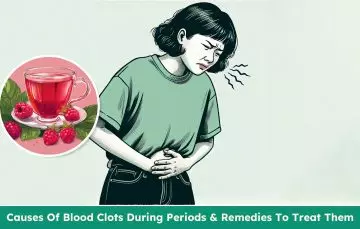
Image: Dall·E/StyleCraze Design Team
Discover the best homeopathic treatments for passing clots during periods. Check out the video below to know how to manage this condition naturally and effectively.
References
Articles on StyleCraze are backed by verified information from peer-reviewed and academic research papers, reputed organizations, research institutions, and medical associations to ensure accuracy and relevance. Read our editorial policy to learn more.
i. Chums in chunks
https://paddlingfoundation.wordpress.com/2020/03/22/chums-in-chunks/
References
Articles on StyleCraze are backed by verified information from peer-reviewed and academic research papers, reputed organizations, research institutions, and medical associations to ensure accuracy and relevance. Read our editorial policy to learn more.
- Effects of total flavonoids of raspberry on perimenopausal model in mice
https://www.ncbi.nlm.nih.gov/pmc/articles/PMC5910651/ - Effect of massage on blood flow and muscle fatigue following isometric lumbar exercise
https://pubmed.ncbi.nlm.nih.gov/15114265/ - Cold-induced vasoconstriction may persist long after cooling ends: an evaluation of multiple cryotherapy units
https://www.ncbi.nlm.nih.gov/pmc/articles/PMC4395553/ - Menorrhagia: A synopsis of management focusing on herbal and nutritional supplements and chiropractic.
https://www.ncbi.nlm.nih.gov/pmc/articles/PMC2077876/ - Abstract Book of The European Headache and Migraine Trust International Congress
https://thejournalofheadacheandpain.biomedcentral.com/articles/ - Effect of ginger (Zingiber officinale) on heavy menstrual bleeding: a placebo-controlled randomized clinical trial
https://pubmed.ncbi.nlm.nih.gov/25298352/ - Discovery of anticoagulant drugs: a historical perspective
https://pubmed.ncbi.nlm.nih.gov/21838662/ - Consumption of a garlic clove a day could be beneficial in preventing thrombosis
https://pubmed.ncbi.nlm.nih.gov/7480084/ - Anticoagulation with prostaglandins and unfractionated heparin during continuous venovenous haemofiltration: a randomized controlled trial
https://pubmed.ncbi.nlm.nih.gov/12060975/ - Apple cider vinegar
https://fdc.nal.usda.gov/fdc-app.html#/food-details/731948/nutrients - Role of vitamin D and calcium in the relief of primary dysmenorrhea: a systematic review
https://www.ncbi.nlm.nih.gov/pmc/articles/PMC7834752/





